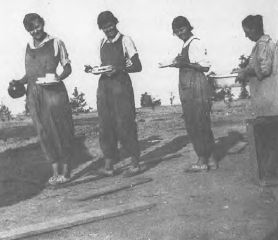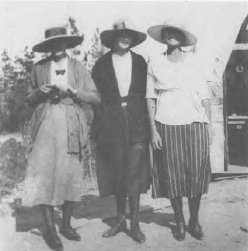News & Events More |
The United Farmers of British Columbia
During the First World War, Canadian farmers on the Prairies and in Ontario were dissatisfied with the two old-line political parties and the apparent domination of government by eastern industrial interests wedded to high protective tariffs. These farmers developed new agrarian organizations to put forward their arguments for free trade and lower freight-rates. The United Farmers groups soon developed into powerful political parties. They elected governments in Ontario in 1919, in Alberta in 1921, and in Manitoba in 1922, and combined through the Canadian Council of Agriculture to form the Progressive Party to contest the federal election of 1921. But in B.C. the agitations by politically-conscious Prairie farmers were politely listened to, and ignored. Roderick Mackenzie of the Canadian Council of Agriculture addressed the 1917 B.C.F.G.A. Convention, calling on them to elect farmer-representatives to Parliament and to promote group legislation. In 1917, representatives of the various Farmers' Institutes in B.C. did meet, with the encouragement of the provincial government, to found the United Farmers of British Columbia. One of the main promoters was J.L. Pridham, a Kelowna fruit grower. But the British Columbian version of the United Farmers was much less militant than its Prairie relatives. Agriculture on the Prairies spoke with a strong united voice because all grain growers had similar interests, but in B.C. there were great differences among fruit growers, dairymen, ranchers, and market gardeners. And any concerted action with the Prairie farmers was made impossible by the grain growers' emphasis on free trade, which included abolition of the duty on imported apples. To this the fruit growers, who had been demanding higher tariffs, at least on American apples, for over twenty-five years, were implacably opposed. 
The United Farmers of British Columbia did grow, however, as a provincial voice of agriculture-an early precursor of the British Columbia Federation of Agriculture. At its high point in 1922, it had over 3000 members in more than 150 locals, and had made an effort, coordinated by C.E. Barnes, president of the B.C.F.G.A., to absorb the Farmers' Institutes entirely. But the matter of political action was its downfall. While the United Farmers vacillated and would not make a decision on entering politics as a party, it did appoint a political committee which could endorse candidates put forward by locals. This committee was highjacked by the promises of General A.D. McRae, a wealthy Vancouver businessman who had bankrolled the new Provincial Party with a view to becoming the next premier. But after the endorsement of the Provincial Party, many farmers became disillusioned as its big business bias became increasingly obvious. The Provincial Party, despite McRae's money and the election of 1924, and the United Farmers of British Columbia, identified in the general mind with the fiasco, declined rapidly. Only six delegates attended its last convention in 1928. The first effort to establish a collective voice for agriculture in British Columbia had failed. Contact Us Hours: 9am - 4pm weekdays. t: 250-762-5226 |

